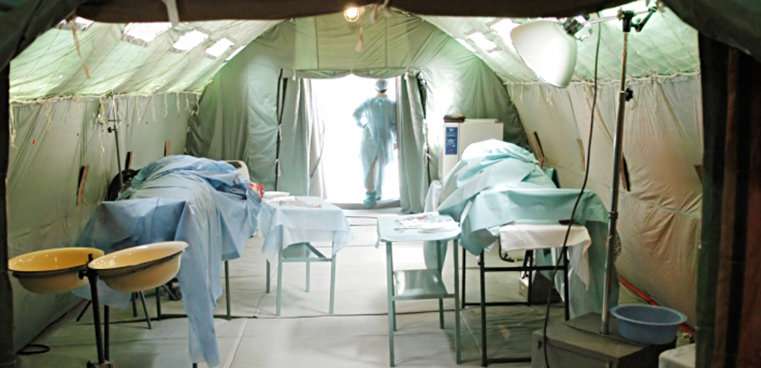Ethical challenges for medical personnel in combat zones

Licensed medical personnel on military operations abroad adapt easily to the military organisation but experience dual loyalties between the organisation and their medical ethics. This emerges in a new dissertation by Kristina Lundberg, doctoral student at the University of Borås and Jönköping University, Sweden.
As a former battalion chaplain in Kosovo and Afghanistan, Kristina Lundberg has experience of licensed medical personnel's ethical dilemmas of working in a military intervention area and has seen the importance of proper training before working in a combat zone.
"Swedish licensed medical personnel should follow laws as well as professional and medical ethical codes when working in an intervention area. My thesis addresses ethical problems among licenced medical personnel on military operations abroad as well as tactical officers' challenge of leading medical staff in combat zones", Kristina Lundberg says.
The results from her thesis show that licensed medical personnel easily adapt to the military structure. However, they do not only undertake care duties but also military duties, resulting in a dual loyalty – in other words that they weigh between their medical ethics and adapting to the military organisation.
Undertaking military duties
"One example is that licensed medical personnel gather information that they call 'intelligence', which is a task normally carried out by trained military staff. When undertaking this specific military duty, they give different arguments to justify it, for example that it feels hard seeing the soldiers work hard when they have nothing to do at the moment", Kristina Lundberg says.
Her results also suggest that tactical officers experience a challenge leading licensed medical personnel. Since they are often recruited outside the military organisation and come to the area on own rotation, the medical personnel are not co-trained with the other staff, which might have a negative impact on the operation.
The results of the thesis could be used to train licensed medical personnel before going to an intervention area as well as educate managers in leading licensed medical personnel.
"There is not much previous research in this field, which has had an impact on the preparations before licensed medical personnel go to an area where they actually risk their lives on a daily basis. My thesis could help improve these preparations. I could also imagine that the results could be used in prehospital care, which in many ways is an environment that sometimes resembles a combat zone", Kristina Lundberg explains.
More information: "Conflicting values—everyday ethical and leadership challenges related to care in combat zones within a military organization" hj.diva-portal.org/smash/record.jsf?pid=diva2%3A1158948&dswid=4213















